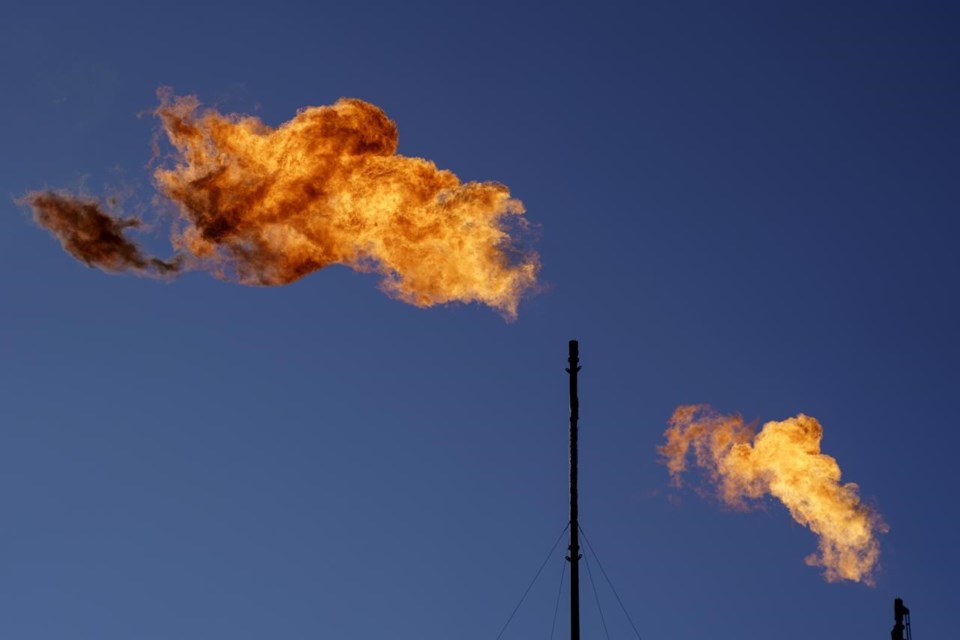New research using the latest figures for Canada's methane emissions concludes it would be much cheaper for the energy industry to meet reduction targets for the potent greenhouse gas than it would be to pay carbon taxes on it.
"The federal government's target for 75 per cent reduction is achievable," said Kris Chapman of Dunsky Energy and Climate Advisors, a Montreal-based consultancy hired by the environmental group Environmental Defence.
Chapman said Canada's oil and gas industry could meet Ottawa's goal of a 75 per cent reduction in methane emissions by 2030 for the equivalent of about $11 per tonne of carbon. The current federal carbon tax is $65 a tonne, although methane is shielded from that tax under some provincial climate change regimes.
Those calculations are based on recent studies that suggest official figures for methane release are significant underestimates. A series of published papers has concluded the methane releases inventoried by the federal government from industry reports are far too low.
Those concerns are echoed in a report this year from the auditor general's office.
"Several Canadian scientific studies suggest that total emissions are under-reported in the national inventory and that the distribution of emissions is likely inaccurate," it says.
Chapman said the Dunsky paper multiplies methane emissions in Canada's national inventory by 1.7 to achieve a more likely estimate of what's actually being released into the atmosphere.
"We're pretty confident that 1.7 is representative of reality."
Dunsky's cost estimate is close to that of the International Energy Agency. Earlier this year, that body estimated that methane equivalent to about 30,000 tonnes of carbon could be eliminated from the Canadian oilpatch — roughly what it would take to meet the federal goal — for $13 a tonne or less.
As well, the Pembina Institute, an Alberta-based clean-energy think tank, released a 2021 report concluding Canada could reduce methane emissions by 80 per cent from 2012 levels for less than $25 per tonne of carbon dioxide equivalent.
The Dunsky paper comes as the federal government prepares a new set of regulations for methane, a greenhouse gas up to 30 times more potent than carbon dioxide. Its conclusions should encourage Ottawa to set strict standards, said Ari Pottens of Environmental Defence.
"We're looking for the regulations to be as ambitious as the proposed framework was," he said.
Environmental Defence wants the rules to ban venting and flaring of methane from oil and gas sites. It wants regular and frequent inspections to ensure compliance and bans on certain types of equipment prone to leak.
The Canadian Association of Petroleum Producers did not immediately respond to a request for comment on the Dunsky report.
However, industry has committed to reducing emissions by 45 per cent by 2025. Alberta's 2021 progress report found methane releases from oil and gas fell about 44 per cent between 2014 and 2021, although that figure is based on official emission estimates.
Pottens said it makes sense for government and industry to go hard after methane.
The effort is cost-effective, he said, and can result in a more saleable product for natural gas producers. But because methane affects climate so strongly at first and then gradually fades, tackling it presents an opportunity.
"If we're able to cut back on methane emissions now, we're actually buying ourselves time later to address some of the tougher climate issues."
This report by The Canadian Press was first published July 19, 2023.
Bob Weber, The Canadian Press



